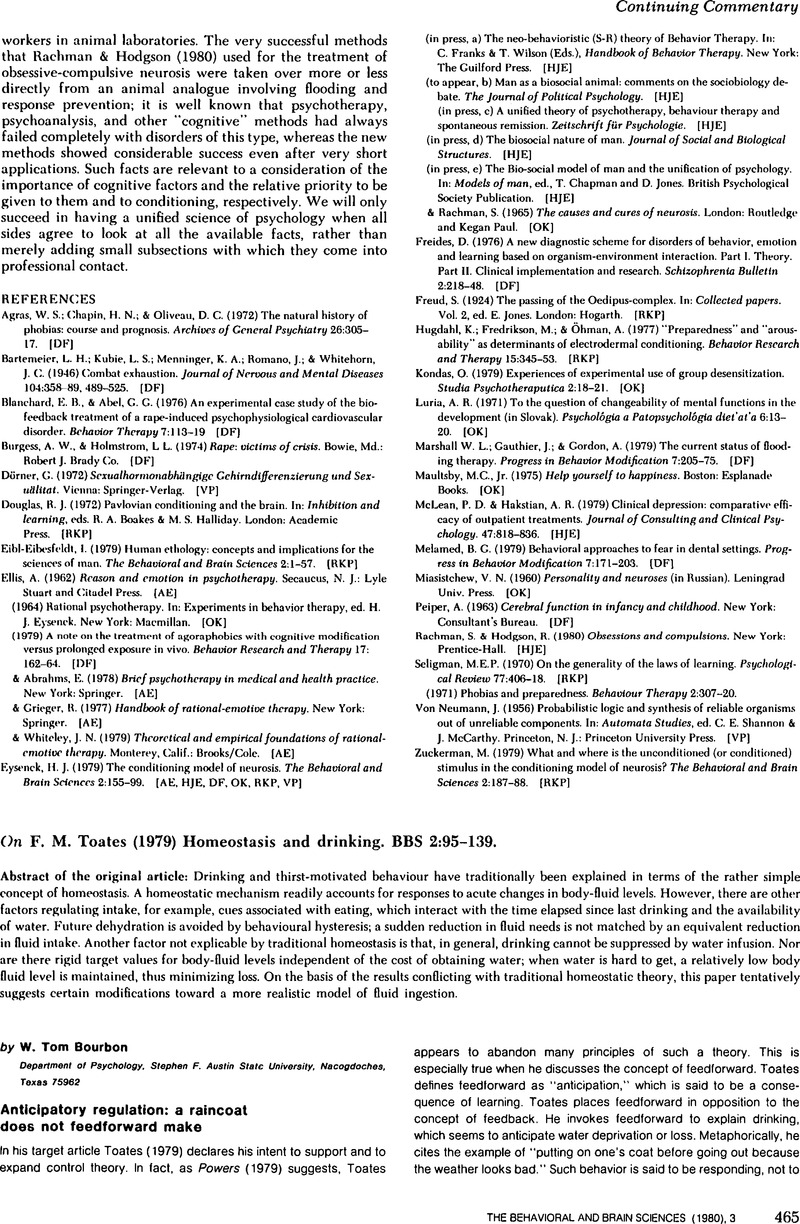Bindra, D. (
1969) The interrelated mechanisms of reinforcement and motivation, and the nature of their influence on the response. In:
Nebraska Symposium on Motivation, (eds.)
Arnold, W. J. &
Levine, D., pp.
1–
33.
Lincoln:
University of Nebraska Press. [FMT]
Google Scholar 